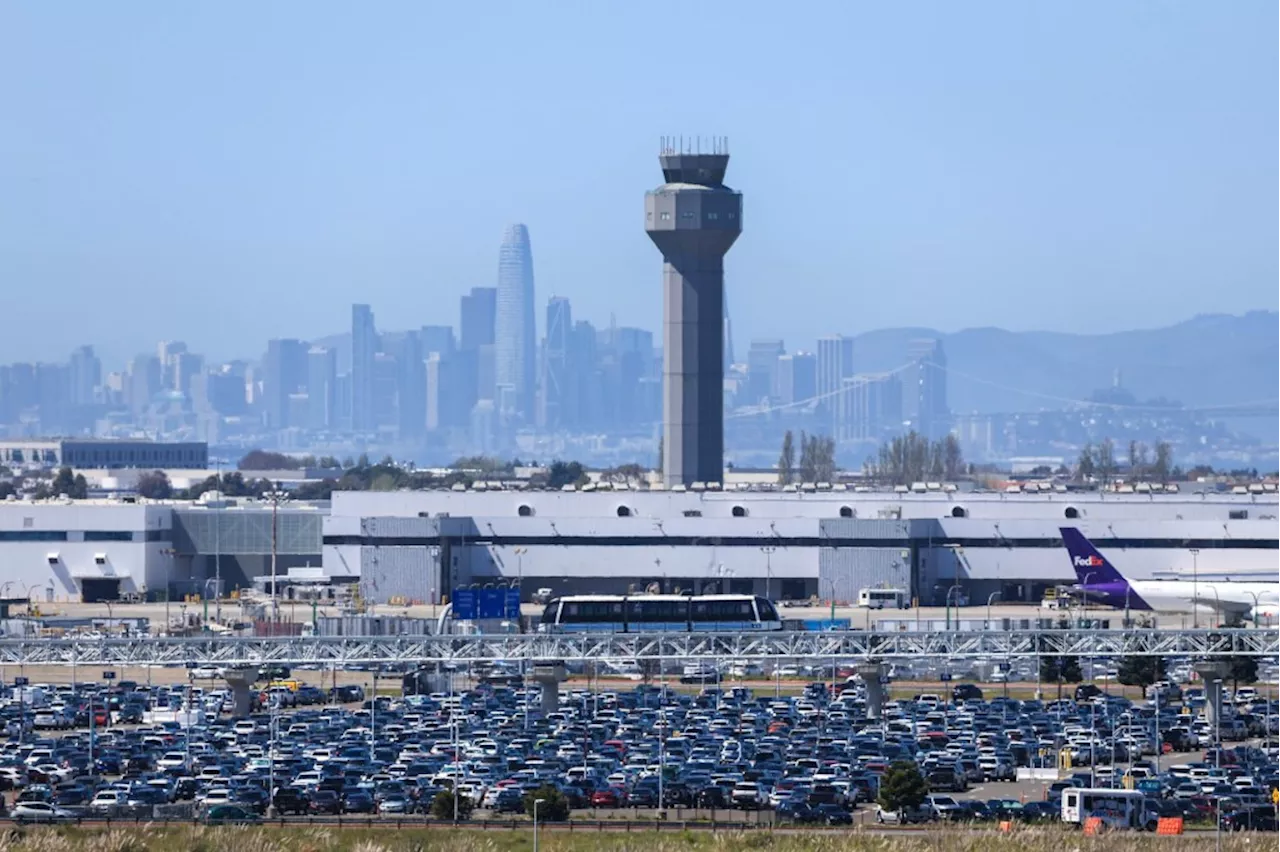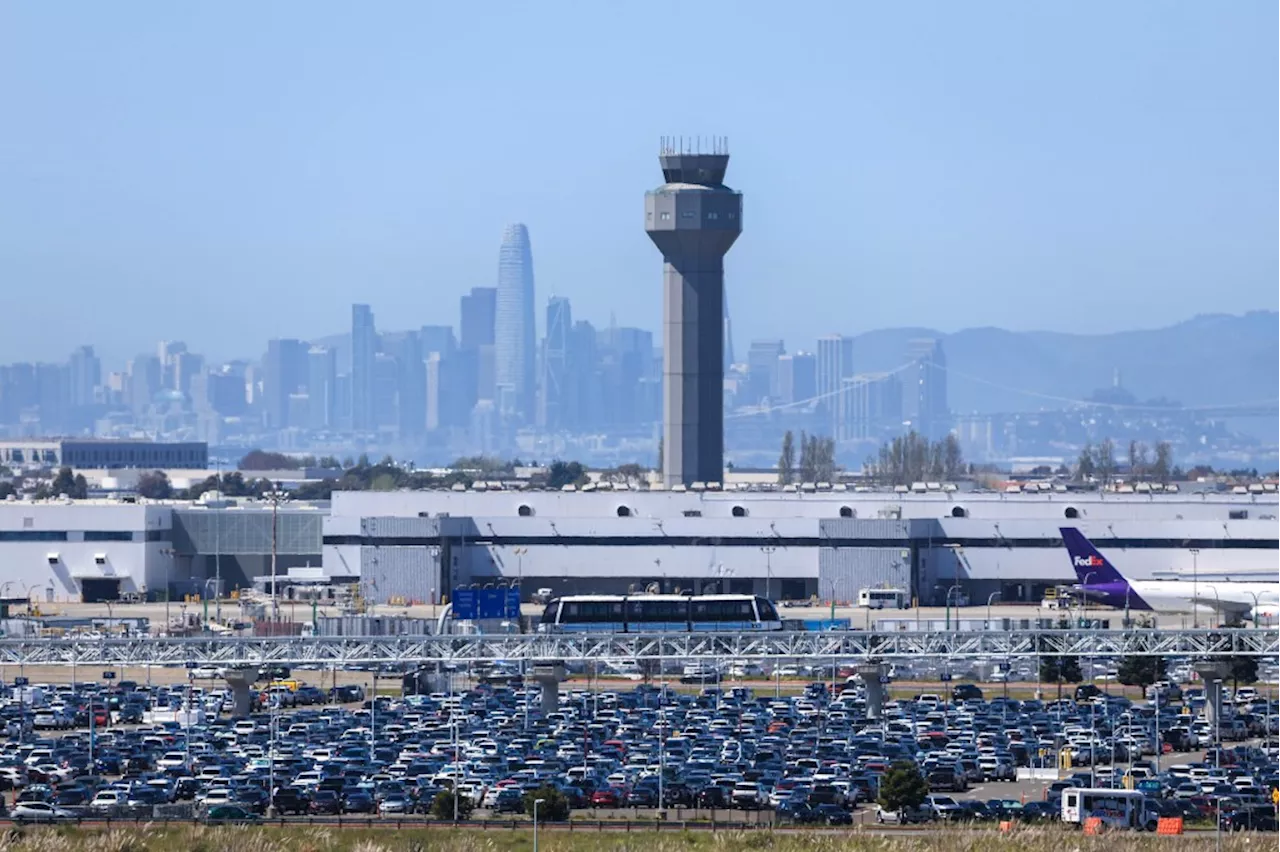An environmental impact report approved for Oakland International Airport expansion raises concerns about its contribution to global warming.
The Port of Oakland in November approved an environmental impact report for a plan to expand the number of gates at Oakland International Airport by 55%. The reporter bemoaned this as an economic setback. For the sake of all our children and grandchildren, I applaud this reduction. Why? Because climate scientists report a sustained reduction in global air traffic by just 2.5% per year could have a huge impact on the future of our planet.
It would immediately halt commercial aviation’s substantial contribution to further global warming. And it’s why Oakland port officials should abandon the expansion plans for the airport they operate. Global warming is an accelerating catastrophe happening right before our eyes. The National Oceanic and Atmospheric Administration recently reported that between 1980 and 2024, there were 66 tropical cyclones, 203 severe storms, 23 wildfires, 24 winter storms, 44 floods, 31 droughts and nine freeze-disaster events in the United States that each resulted in economic losses of $1 billion or more, as measured in today’s dollars. All these disasters were deemed by NOAA to be effects of global warming. And the number of these events occurring yearly dramatically increased after 2010. The yearly average was three disaster events in the 1980s, six in the 1990s, seven in the 2000s, 13 in the 2010s and 22 so far in the 2020s. Climate scientists agree that we will reach a tipping point once Earth’s average surface temperature becomes 2 degrees Celsius (3.6 degrees Fahrenheit) higher than the average recorded between 1850 and 1900. When the tipping point is reached, they predict, the acceleration of climate catastrophes we are now observing will become irreversible. Earth’s current average surface temperature is already 1.5 C above the 1850-1900 average and approaching the critical 2 C threshold faster than climate scientists had expected
CLIMATE CHANGE GLOBAL WARMING AIR TRAFFIC AIRPORT EXPANSION ENVIRONMENTAL IMPACT
United States Latest News, United States Headlines
Similar News:You can also read news stories similar to this one that we have collected from other news sources.
 2 lawsuits challenge environmental, health impacts of Oakland Airport expansionTwo lawsuits attempting to block an Oakland Airport expansion address the impacts it would bring to the community and environment with increased air pollution.
2 lawsuits challenge environmental, health impacts of Oakland Airport expansionTwo lawsuits attempting to block an Oakland Airport expansion address the impacts it would bring to the community and environment with increased air pollution.
Read more »
 Ruling against 'San Francisco Bay Oakland International Airport' name change appealed by Port of OaklandThe Port of Oakland is appealing a court ruling that temporarily blocks it from using its new airport name, San Francisco Bay Oakland International Airport.
Ruling against 'San Francisco Bay Oakland International Airport' name change appealed by Port of OaklandThe Port of Oakland is appealing a court ruling that temporarily blocks it from using its new airport name, San Francisco Bay Oakland International Airport.
Read more »
 ICE Expansion in New Jersey: A Setback for Immigrant RightsThis article reports on the potential expansion of ICE detention facilities in New Jersey, highlighting the concerns of immigrant rights organizers and the history of the state's activism against ICE.
ICE Expansion in New Jersey: A Setback for Immigrant RightsThis article reports on the potential expansion of ICE detention facilities in New Jersey, highlighting the concerns of immigrant rights organizers and the history of the state's activism against ICE.
Read more »
 Dave & Buster’s eyes expansion at choice spot near Oakland waterfrontDave & Buster’s, a high-profile entertainment and restaurant chain, is eyeing a site near the Oakland waterfront.
Dave & Buster’s eyes expansion at choice spot near Oakland waterfrontDave & Buster’s, a high-profile entertainment and restaurant chain, is eyeing a site near the Oakland waterfront.
Read more »
 Environmental organization seeks injunction to stop Oakland Airport terminal redevelopmentThe environmental group Communities for Better Environment has filed a lawsuit against the Port of Oakland, which manages the Oakland Airport, claiming the Environmental Impact Report approved the …
Environmental organization seeks injunction to stop Oakland Airport terminal redevelopmentThe environmental group Communities for Better Environment has filed a lawsuit against the Port of Oakland, which manages the Oakland Airport, claiming the Environmental Impact Report approved the …
Read more »
 Environmental Group Sues Port of Oakland Over Airport Terminal RedevelopmentCommunities for Better Environment (CBE) filed a lawsuit against the Port of Oakland, alleging their environmental analysis for the airport's terminal redevelopment project understates the potential harm to marginalized East Oakland communities. CBE argues the project lacks proper consideration of air quality, noise pollution, and traffic impacts on the predominantly Black and Latino population. The lawsuit seeks an injunction to halt the project until a comprehensive environmental assessment is conducted.
Environmental Group Sues Port of Oakland Over Airport Terminal RedevelopmentCommunities for Better Environment (CBE) filed a lawsuit against the Port of Oakland, alleging their environmental analysis for the airport's terminal redevelopment project understates the potential harm to marginalized East Oakland communities. CBE argues the project lacks proper consideration of air quality, noise pollution, and traffic impacts on the predominantly Black and Latino population. The lawsuit seeks an injunction to halt the project until a comprehensive environmental assessment is conducted.
Read more »
